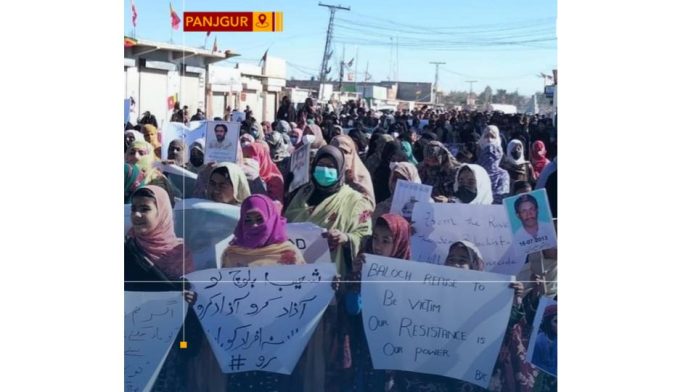In a landmark development, in Turbat, Baloch women led a massive protest rally organized by the Baloch Yakjehti Committee, marking the third phase of their protests against the “Baloch Genocide.” For more than a month, continuous demonstrations have echoed throughout Pak-occupied-Balochistan, where the region has been plagued by atrocities.
Earlier on 7th Jan, thousands rallied in Quetta and Karachi, initiating the Baloch Yakjehti Committee’s (BYC) third phase of protests. The marches, with notable participation from women and children, highlighted escalating concerns about human rights abuses in Balochistan.
In Quetta, the protest commenced at Balochistan University, with demonstrators marching across the city, condemning enforced disappearances and perceived state oppression. Concurrently, in Karachi’s Malir, a substantial crowd, including a significant number of women and children, assembled in one of the area’s largest protests to date.
A sea of voices
The Baloch Long March, starting on December 6, 2023, from Turbat to Islamabad, in the wake of the extrajudicial killing of Balach Mola Bakhsh by Pak CTD, is led by women and families of those forcibly disappeared.
Balochistan is witnessing a transformative moment with protests surfacing in remote villages like Dasht Kuldan, near Gwadar, where such demonstrations were unheard of before. Courageous leaders like Sammi Baluch and Dr. Mahrang Baloch have played a pivotal role, surpassing any in Balochistan’s history.
In Mastung, a significant number of people, including women and children, were observed protesting against human rights violations in Balochistan. Additionally, protests were witnessed in Panjgur as a large rally was held to protest against the “systematic killings of Baloch.” The protest was called by BYC as part of its 3rd phase of protests against “Baloch genocide.”
The stalwart Mama Qadeer Baloch, Vice-Chairman of the Voice for Baloch Missing Persons (VBMP), reminded the Pak Army of their failure in Bangladesh, emphasizing that their illusion to subjugate the oppressed by force, kidnapping, and dropping dead bodies will not last long. He appealed to all oppressed ethnic communities, Pashtuns, Sindhis, and other ethnic groups to support BYC’s peaceful sit-in in Islamabad and intensify this protest against the killings and kidnappings by the Army.
Meanwhile, countering the Pak Army’s narrative, Dr. Mahrang Baloch clarified the air concerning the protest. She stated, “It must be understood that the families of missing persons aren’t responsible for the unrest in Balochistan, nor are they engaging in a war of narratives. The state should recognize the peaceful struggle for their loved ones’ release. Daily, the Army undermines our cause with new actions. We are addressing a genuine issue, not fighting a war of narratives.”
Since March 27, 1948, Pak Army forcefully occupied the resource rich province of Balochistan. Since then, the Baloch people have endured relentless oppression, facing home raids, disappearances, staged encounters, target killings, torture, and kidnappings for ransom.

